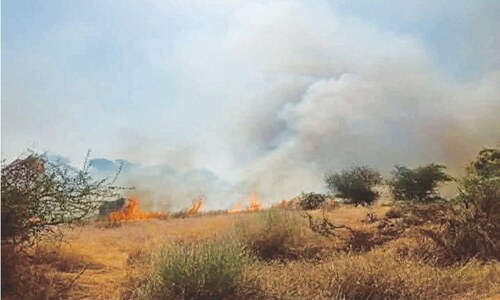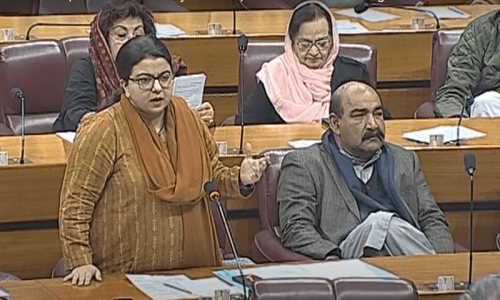LAHORE: The Pakistan Railways (PR) could face major accidents on the decaying rail line from Khanpur to Kotri, as the federal government continues to delay the approval of Rs30 billion PC-1 for track rehabilitation it received from the department around three months ago.
On the other hand, the approval of the ML-1 (Main Line-1) project to be completed under the China-Pakistan Economic Corridor (CPEC) seems elusive, leaving the railways with no option but to continue operations on the existing line.
PR wants to rehabilitate 470km Khanpur-Kotri track immediately
“The situation is very disappointing as the Rs30bn PC-1 meant for rehabilitation of the 470-kilometre critical line-1 track from Khanpur to Kotri — a stretch that has seen the majority of fatal and non-fatal accidents, especially in the last three years — is yet to be approved by the Planning Commission despite the fact the PR sent the proposal about three months ago,” an official source said while talking to Dawn on Friday.
“The delay may lead to major accidents on this portion anytime in the future, as the track is in a dilapidated condition and is considered a high-risk area,” the official requesting anonymity warned.
When asked about the reasons behind the delay, he said the commission is confused about approving the project. Senior officials are of the view that the CPEC’s ML-1 project is supposed to rehabilitate the entire rail track from Karachi to Peshawar and is already pending approval by the Chinese government, so execution of this scheme worth Rs30bn could be questioned in the future.
“They (the commission) are in a fix whether to approve this project or not at a time when the ML-1 project approval is awaiting the Chinese nod. They know the expense incurred on the Khanpur-Kotri track rehabilitation can be included and later deducted from the Chinese financing after approval of the ML-1 project, hence they are indecisive about it,” the official said, requesting the federal government to intervene and press the commission to approve the project.
Under the project, the PR aims to rehabilitate 15km to 25km critical stretches on the 470km Khanpur-Kotri portion by replacing them with new tracks, while maintenance of the less-dangerous portions is also part of the project. The decision was taken after the PR felt that since the ML-1 project approval was facing delays, it should start rehabilitation of the critical portions of the track (mainly in Sukkur and Karachi divisions) on its own in funding collaboration with the federal government to avert accidents.
The PR had also requested the Chinese authorities to at least allow it to initiate the bidding process for the $6.8bn ML-1 project and that any issues related to its cost revision could be solved later.
The PR chief executive officer was not available for comments despite attempts.
Published in Dawn, November 27th, 2021













































Dear visitor, the comments section is undergoing an overhaul and will return soon.